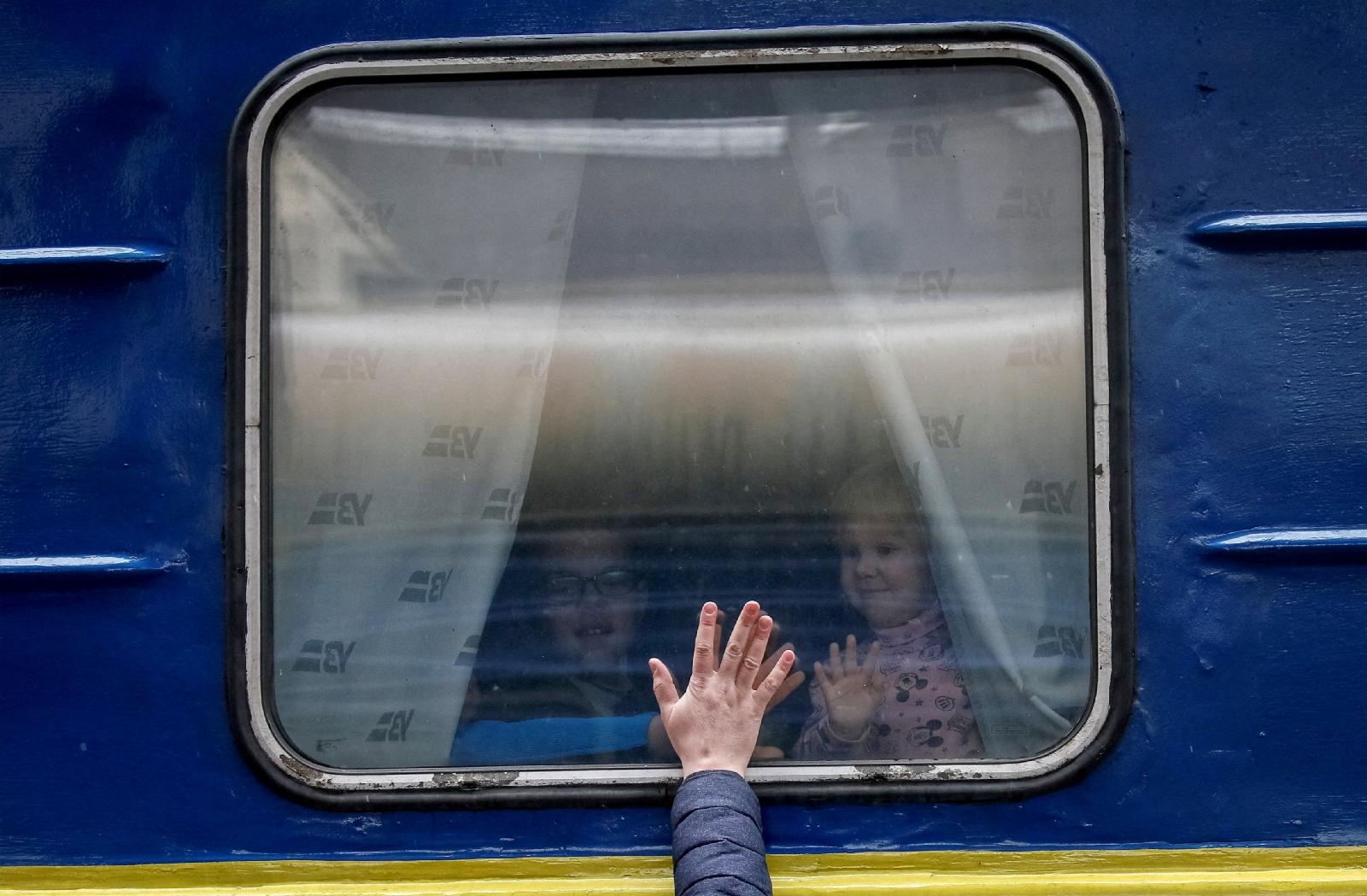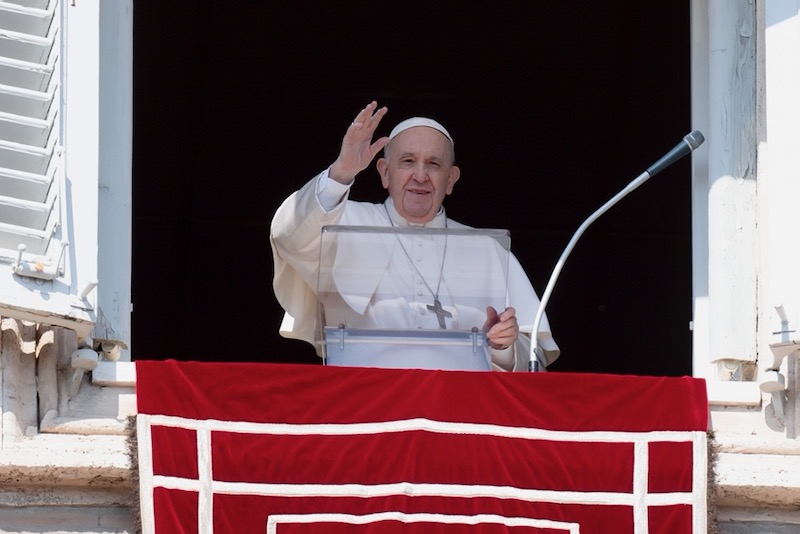The Holy See Press Office last week announced that Pope Francis will be travelling to the Democratic Republic of Congo (DRC) and South Sudan in July, having accepted invitations from the heads of state and bishops of the countries. He will be visiting Kinshasa and Goma in DRC from 2 to 5 July, before travelling to Juba, in South Sudan, from 5 to 7 July 2022. (see View from Rome)
On 4 March Cardinal Charles Maung Bo, Archbishop of Yangon and President of the Federation of Asian Bishops’ Conferences (FABC) released a statement entitled “Resist the risk of a Nuclear Winter, Rally for the Global Peaceful Spring.” The FABC statement lamented attacks on Ukraine and the threat of using weapons of mass destruction, warning about “the nightmare scenario of a global nuclear holocaust”.
More than 20,000 priests, religious and laity formed a human chain on 2 March in Karnataka, Southern India, to protest attacks on Christians and an anti-conversion bill. “People prayed together and voiced their demand to protect secularism in the country,” said a spokesman of the Karnataka Catholic Bishops’ Council. Banners included, “Equality with other citizens is our constitutional right.” Archbishop Peter Machado of Bangalore said the Karnataka Protection of Right to Freedom of Religion Bill 2021, tabled by the pro-Hindu Bharatiya Janata Party, is “discriminatory”.
On Saturday 5 March in Lebanon a Special Synod of Women was held at the headquarters of the Maronite Patriarchate in Bkerké northeast of Beirut and with Maronite Patriarch Béchara Boutros Raï and other bishops of the Maronite Synod in attendance. It said that the ecclesial life of Middle Eastern communities must free itself “from practices that reduce women to second-class beings, practices contrary to the spirit of the Gospel”.
A 6-3 US Supreme Court majority voted to reinstate the death penalty sentence against Dzhokhar Tsarnaev, one of two brothers who carried out the 2013 Boston Marathon bombing in which three people were killed. The decision overturned a lower court ruling that had set aside the death penalty punishment because the trial judge had withheld key evidence from the jury. That evidence indicated that Tsarnaev, who was 19 years old at the time of the bombing, was not the mastermind of the plot, but was coerced by his older brother Tamerlan. Writing for the majority, Justice Clarence Thomas said, “Dzhokhar Tsarnaev committed heinous crimes. The Sixth Amendment nonetheless guaranteed him a fair trial before an impartial jury. He received one.” Last year, Attorney General Merrick Garland announced a moratorium on federal executions.
A manifesto released in Chile last week by the International Network of Women Catholic Leaders, part of the Latin American Academy of Catholic Leaders based in the Chilean capital Santiago, declared: “Women want and demand peace”. The statement, prompted by the Russian invasion of Ukraine, said that, during conflict, women “are subject to the most varied forms of violence, making them one of the most vulnerable sectors of the population.”
Witchcraft is holding back development, creating fear, causing death and dividing families, according to the Director of the National Commission for Biblical Pastoral Care of the Bishops’ Conference of Angola and São Tomé. In an interview last week with Vatican News, Fr Bonifácio Tchimboto said that when communities cannot explain a misfortune, someone can be accused of witchcraft and face mob violence.
Tributes have been paid to Catholic politician and Pakistan’s former federal minister for minorities, Shahbaz Bhatti, to mark the 11th anniversary of his murder. There were prayer vigils in Karachi and other cities, plus an online event on 2 March hosted by Christian Solidarity Worldwide. Contributors included Asia Bibi, who was visited by Shahbaz Bhatti while imprisoned on blasphemy charges.
Bhatti was assassinated in Islamabad on 2 March 2011 for his dissenting views on controversial blasphemy laws. Meanwhile Archbishop Justin Welby of Canterbury expressed concern over the misuse of blasphemy laws during a three-day visit to Pakistan. The laws were clearly being misused to target non-Muslim minorities, including Christians and Hindus, he said. On 28 February in Islamabad, he held separate meetings with President Arif Alvi, Prime Minister Imran Khan and Chief of Army Staff General Qamar Javed Bajwa. (There is a recording of the Bhatti event at: https://www.youtube.com/watch?v=FuGCViPLtvM)
The bullet-riddled body of Fr Enrique Vasquez, 48, parish priest of San José, in San Pedro Sula Diocese, Honduras, and diocesan director of the Pontifical Mission Societies, was discovered in his car on 2 March. “Once again the blood of the martyrs bathes our land,” said Bishop Ángel Garachana Pérez of San Pedro Sula.
Catholic clergy in Sri Lanka joined protesting fisherfolk on 3 March, calling on the government to protect their livelihoods from development projects that are harming coastal areas. Bishop J.D. Anthony, auxiliary in Colombo, urged the government to resolve the issues being raised. Fisherman Sebastian Fernando gave the example of sand being pumped to fill the east and west jetties of Colombo port, negatively impacting marine life and fishing. He complained that “the sea bed has been eroding for years but the authorities have not paid attention”.
Catholic officials in the Ethiopian province of Tigray are continuing to call for meaningful peace talks, an end to atrocities and a humanitarian corridor for aid. Around 2.5 million people are displaced in the region where the Ethiopian government is fighting the separatist Tigray People’s Liberation Front. The Eparchy of Adigrat, the diocese which covers Tigray, has urged all Ethiopia’s bishops to speak out against the blocking of humanitarian aid.
After four months’ leave at the Pope’s wish, Cardinal Rainer Maria Woelki returned to his Cologne archdiocese on Ash Wednesday, 2 March, as expected. In a 5-page Lenten pastoral letter Woelki asked the faithful in his archdiocese to give him a second chance, after his mishandling of clerical sex abuse cases. He had offered the Pope his resignation, which was not accepted, and he now hoped for a new departure in the archdiocese. “Above all I ask for your prayers for all of us on what will certainly not be an easy way forward,” he said.



 Loading ...
Loading ...